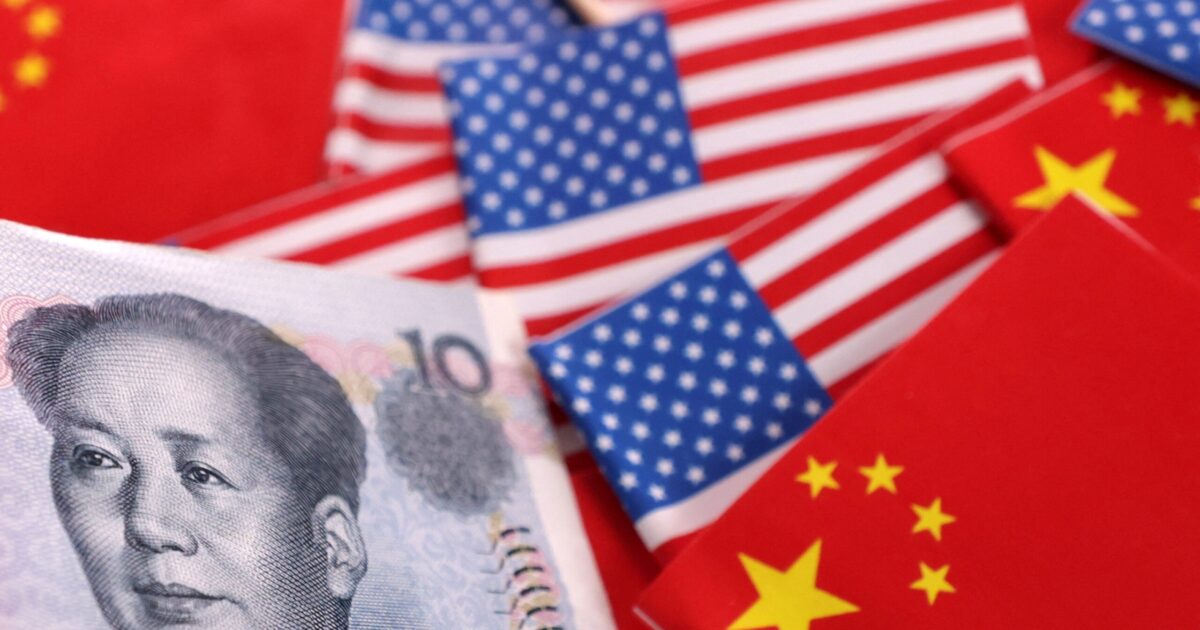The possibility of taking an important step towards limiting TP-Link Systems activities in USA examines the Trump government, a router manufacturing company connected to Chinawhose Wi-Fi equipment is popular in the US market.
Specifically, the US government is considering issuing an “initial decision” that TP-Link is a threat to national security after researching its links with China that began last year. The evaluation has been ready for some time, but in recent weeks there has been a strong activity to promote it, according to the same sources. Such a finding would bring TP-link one step closer to the possible restriction or prohibition of its activities in the US, according to Bloomberg.
The growing focus on TP-Link comes before a scheduled meeting between President Donald Trump and Chinese President Xi Jing at the end of the month. This week, China has revealed new restrictions on exports of rare earths, enhancing its leverage ahead of talks. Meanwhile, US supporters of the hard line against China are afraid that Trump is softening his approach to Beijing as he is pursuing a trade agreement.
TP-Link is facing increasing control in Washington over its connection to China, with legislators from both parties expressing concern that its wireless equipment could be exploited by Chinese hackers after a series of attacks on its routers. In May, more than twelve Republican legislators, including Senate Information Committee Chairman Tom Koton, demanded the ban on further sales of TP-link products from the US.
Trump signed an executive decree in 2019 that created the authority to be used for the TP-Link research, although it has rarely been invoked. It provides the Ministry of Commerce extensive powers from banning information and communication technology companies associated with foreign opponents from active in the US if it is found to be a “unacceptable risk” for national security.
TP-Link will have the opportunity to challenge any findings before making a final decision.
A TP-Link spokesman said the company “will continue to work closely with the Ministry of Commerce to resolve any concerns, including mitigating any risks that the Ministry of Commerce may report. We are confident that the evaluation of the Ministry of Commerce will be completed by recognizing the security of TP-Link functions and products. “
White house representatives did not respond to commentary requests. A spokesman for the Ministry of Commerce said the Agency does not comment actively comment on law enforcement, nor confirms or denies the existence of any pending investigations.
Founded in China almost three decades ago, TP-Link has recently accelerated its efforts to distance itself from its origin. The company completed its split last year into two separate entities: an Irvine -based American unit in California and a Chinese unit based in Shenzhen. While the American entity is committed to making significant investments in the US, it still has significant activities in mainland China, according to a Bloomberg News study published in April.
Prior to split, TP-Link was the largest Wi-Fi equipment provider for consumers in the world, according to IDC market research company. Its routers, which transmit information from the internet to devices such as computers and smartphones, are widely sold through retailers such as Amazon.com Inc. and the Best Buy Co. , and can be found in homes and small businesses across the country.
The TP-Link routers were among the various trademarks-including the US-exploited by the Chinese state-funded Chinese hackers and launched the mass attacks of Volt and Salt Typhoon that targeted critical US infrastructure, US officials said.
There is no evidence that the TP-Link was complicit in some of the attacks and the company has stated that it was unable to verify how its devices were affected if they were affected at all.
In addition to trade in trade, the US is conducting criminal investigation into antitrust legislation on TP-Link pricing strategies and whether the growing market share of the company in the US is a threat to national security, Bloomberg said in April.
